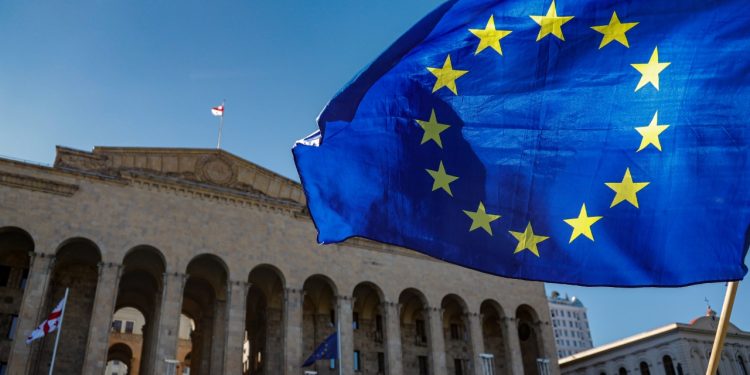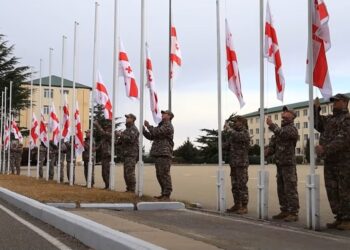According to the US National Democratic Institute [NDI] survey, compared to the previous one, in February 2022, the share of respondents who believe that Georgia should have the closest relations with the European Union has increased – from 29% to 54%. At the same time, the number of those who favor close relations with Russia has decreased from 24% to 12%.
The highest rate of those in favor of close relations with the European Union is recorded in the groups of respondents living in Tbilisi and young people [18-34 years old].
Regarding economic cooperation, the number of those who support the closest relationship with the European Union has increased by 22% compared to February of the previous year, to 52%. In the same period, the share of those willing to cooperate with Russia decreased from 29% to 16%.
Compared to several surveys conducted in the previous year, the share of supporters of joining the European Union is virtually unchanged – around 80%. In March 2023, support for this goal was 82%.
However, the majority of respondents believe that the government is either doing nothing for EU membership [18%] or not doing enough [35%]. 28% say that the government is doing everything to achieve the goal. Changes compared to December 2022 are within [2%] margin of error. A total of 19% of “Georgian Dream” supporters share that the government either does nothing [3%] for European integration, or does not do enough [16%].
Support for joining NATO remains at a high level, at 73 percent. Changes compared to previous studies are insignificant.
At the same time, the share of those who prefer Euro-Atlantic integration to close relations with Russia has increased – from 65% [July 2022] to 69%. The number of those who prefer to be closer to Moscow decreased from 12 to 7 percent during the same period.
Supporters of the ruling party [56%] are less likely to agree with the thesis that Georgia will benefit from Euro-Atlantic integration compared to citizens who support the opposition [81%] or those who refuse to name a party [70%].
Also, the majority believes that Georgia should limit economic relations with Russia or leave them unchanged. Women, youth and opposition supporters are more likely to support such a move. The share of those who support the deepening of economic relations with Russia decreased slightly by 4% [compared to July 2022].
The survey was conducted on March 17-23, 2023, in the format of a telephone interview. The respondents were selected by a simple random sampling method – by calling a random number. The survey covers the entire population of Georgia (excluding the occupied territories). The response rate was 14%. The margin of error is +/- 2%.
The NDI research was funded by UK aid from the UK government. Field work was conducted by CRRC Georgia.














